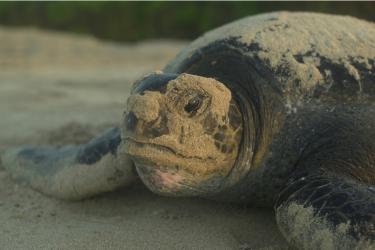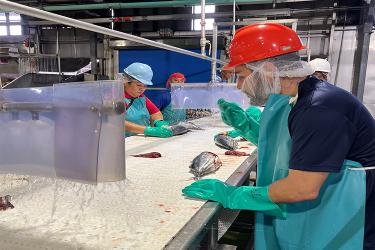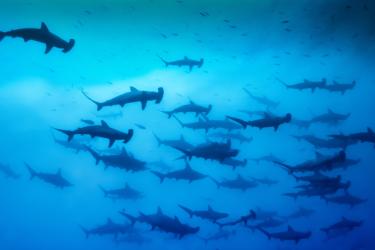The South Pacific Regional Fisheries Management Organization took a historic decision to adopt a U.S. proposal to establish comprehensive SPRFMO-specific high seas boarding and inspection procedures. This was one of 13 proposals adopted at the 11th annual meeting this month in Ecuador, where U.S. leadership was on full display.
Combating Illegal Fishing: High Seas Boarding and Inspection
Members adopted a U.S. proposal to establish SPRFMO-specific procedures in a comprehensive measure governing high seas boarding and inspection in the South Pacific. It is the culmination of efforts by the United States to achieve greater surveillance and monitoring over fishing activities in the Convention Area.
"This is a big step forward for SPRFMO. Negotiations on this measure have been ongoing for more than 5 years,” says Alexa Cole, Director of the Office of International Affairs, Trade, and Commerce for NOAA Fisheries, who serves as the U.S. Commissioner to SPRFMO. “This puts in place important detailed procedures for high seas boarding and inspections that will facilitate efforts to combat illegal, unreported, and unregulated fishing in the South Pacific.”
Promoting Sustainability: Limits Imposed on Effort in the Jumbo Flying Squid Fishery
The organization also took an important step towards controlling fishing levels in the jumbo flying squid jigging fishery. A working group chaired by the United States reconciled five competing proposals. Members adopted a measure that will, for the first time, limit the number and size of vessels flagged to China, Taiwan ( participating as Chinese Taipei), and Korea that target squid in the eastern Pacific. Three of the five proposals, including the one from the United States, also advocated for an increase in the observer coverage to at least 10 percent of fishing days. The organization could not reach consensus on an increase in observer coverage despite support from the United States and most coastal states. There is a clear need to improve monitoring of this fishery for scientific and compliance purposes. The United States is disappointed that Members representing distant-water fishing interests blocked more ambitious action and is committed to working with members to achieve this in the future.
Commitment to Future Action: Addressing Climate Change Impacts
The United States proposed that the Commission and its science and compliance committees consider climate change as a standing agenda item in all future meetings and make recommendations for the Commission. The organization adopted this document with broad vocal support from its membership. The adoption of the U.S. proposal is an important step for SPRFMO to help address climate change and ensure that the organization considers this issue in its decision making.
Advancing Conservation: Strengthened Protection of Vulnerable Marine Ecosystems
Members adopted a measure to enhance the conservation of vulnerable marine ecosystems in the South Pacific and take other steps to improve the management of bottom fishing on the high seas. The measure will implement a minimum level of 70 percent protection of suitable habitat for vulnerable marine ecosystems. While the United States advocated for an even higher level of protection, the new measure represents a significant step forward towards greater protection of deep-sea resources. Scientific uncertainty surrounding whether further protection may be needed will be addressed by the Scientific Committee in the coming year. The United States will continue advocating for action to prevent significant adverse impacts of fishing activities on VMEs consistent with the best available scientific information and the precautionary approach.
Unprecedented 10-Year Deal on Jack Mackerel
The United States chaired a working group developing a proposal for the allocation of jack mackerel among current and new participants in this important fishery. The organization adopted by vote an allocation that will strengthen management and sustainable use in this fishery for the next decade. It will also promote more stability for the organization and the fishing industry. The rebuilding of jack mackerel from its depleted state a decade ago to the thriving, sustainably managed fishery it is now is a significant accomplishment for SPRFMO. It is an example of the success that can be achieved through international cooperation in regional fisheries management organizations.



